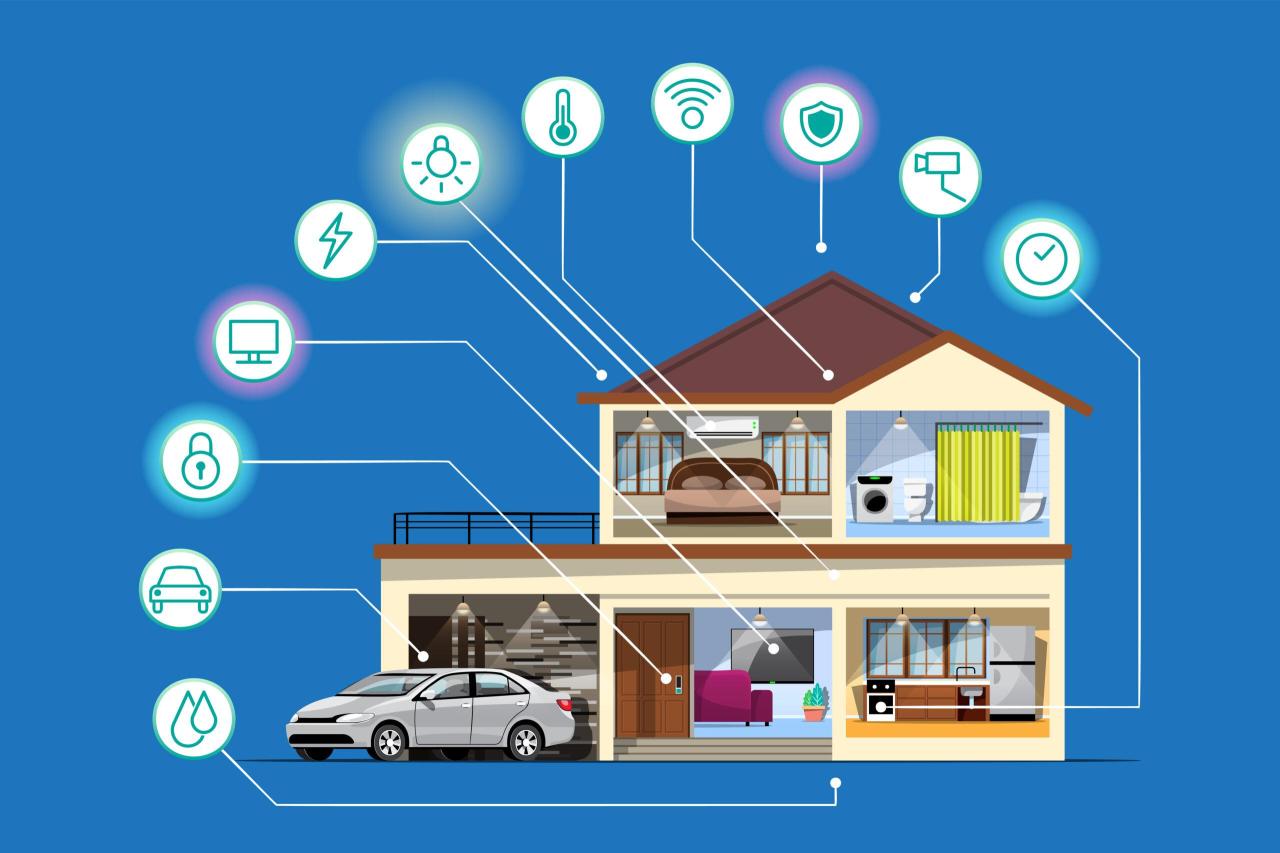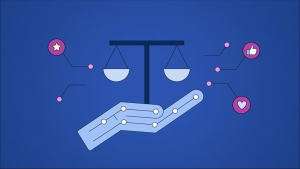How companies are transformed with AI, chatbots and machine learning
Artificial Intelligence, virtual or augmented reality, smart contracts or 5G, promise to introduce disruptive changes in companies. They assure that 2024 will be the year of explosion in use.
As happened when computers or the Internet burst onto the production scene, companies today face the incorporation of new disruptive technologies in a digital transformation process that seems to never stop.

Artificial Intelligence (AI) is the star, but companies are also investing in virtual or augmented reality equipment, increasingly using blockchain and adopting or preparing for 5G, among other innovations. Both solution providers and their clients agree that 2024 will be the year of AI.
According to the global C-Suite Outlook survey by The Conference Board (TCB), in which Argentine managers consulted through IDEA participated, currently only 22 percent of companies in the world, and 11 percent in the country maintain that they have already adopted this technology in their business operations. However, that percentage rises to 28 percent of Argentine companies (and 32 percent globally) when asked if they plan an immediate integration in some or all of the business units. In addition, half of the organizations in Argentina and 39 percent abroad are already exploring how to implement AI in the future.
For Juan Pablo Peries, director of Digital Transformation at the talent company Randstad, not only are more and more firms using AI, but it fulfills increasingly practical roles and “becomes a new co-worker. ” “For example, in technology there are already AI tools that help programmers increase their productivity. They function as co-pilots that offer them code or assist them in detecting errors,” he illustrates. “Other AI solutions help organizational staff create content, such as text or images. In these cases, the person must analyze what the AI produces,” he continues.
In the case of Human Resources departments, it clarifies that the incorporation of digital tools, from ERP to bots and virtual assistants that accompany interview processes, has a limit. “This is an area that cannot be completely automated, since HR management has to do with the development of links, with the culture of the company, with processes of identification and commitment to teams,” he points out.
Héctor Alcar, engineer and director of the Innovation, Entrepreneurship, and Startups area of the Association of Professionals and Entities in New Technologies (Aprent), remembers that, according to Travesía 4.0, a 2019 Cippec report based on 293 companies surveyed, Only 27 firms had fourth generation technologies.
Subsequently, the pandemic accelerated adoption and, according to work carried out between 2022 and 2023 by the Southern Technological Civil Association, more than 60 percent of productive and service companies in the province of Buenos Aires already have digital transformation technologies.. ” The most applied relevant technologies are collaborative robotics, unified management systems and sensor technologies,” he indicates. And he adds: “There is an incipient exploration of disruptive technologies for the industry, such as the use of virtual or expanded reality for simulation, AI in business management and the nascent 5G in communications.”
Providers and evangelizers
For Natalia Scaliter, general manager of Google Cloud Argentina, we are facing a new technological paradigm: “Advances in AI, machine learning and language models present us with a new way of doing things, a new way in which we interact with technology. in our daily lives in our daily tasks”.
Google announced its next chapter in AI advancements, which it called “The Gemini Age” and which is a language model that can interact with different types of information (text, images, audio or programming code).
Scaliter says that the current scenario is one of inspiration and opportunities for businesses and companies of different industries and sizes. ” Many Argentine companies are already using AI to optimize their industrial processes, gain efficiency, reduce costs and speed up decision-making,” he says, and specifies that, according to a study carried out by McKinsey in June 2023, the economic potential of AI is 17 to 25 billion dollars.

“2024 is the year of AI adoption,” confirms Sebastián Aveille, commercial director of the Enterprise segment for Microsoft Argentina. He also reveals that, at both the individual and corporate level, AI is no longer talked about in abstract terms, but rather to create products and increase productivity.
Aveille highlights that one of the advantages that this technology proposes is freeing people from repetitive and operational tasks to leave more time for the strategic and more satisfying. “The digital debt that we all experience, given the incessant interaction of emails, meetings, chats, and the incessant flow of information, diverts time and energy from the creative work that is fundamental for innovation,” he points out. According to the Microsoft Work Trends Index, 62 percent of employees feel they spend too much time searching for information, communicating and coordinating, leaving them less for reflection, creation and social collaboration. Copilot, the AI virtual assistant developed by the technology company, seeks to address this situation, as it allows you to automate repetitive tasks so that teams can dedicate themselves to tasks that motivate them more.
For Aveille, new uses can be presumed. “As different economic sectors investigate the possibilities of generative AI, the government is emerging as one of the potential beneficiaries of this transformation,” she projects.
AI is not the only innovation that will produce transformations in its implementation. In terms of telecommunications, 5G also represents a qualitative leap. “Just as 4G opened a new era for mobile internet, allowing numerous app-based companies to use services such as education, health or money on the phone, 5G as an evolutionary technology presents greater potential,” they assert from Telecom.
The company specifies that it will allow the development of new use cases thanks to the exponential increase in the number of connected devices, which will enable the existence of smart homes, buildings or cities. “With 5G we can have a million devices per square kilometer connected simultaneously,” they illustrate. The network enables faster reaction from remote devices and facilitates cloud work and gaming, as well as real-time image and video processing, industrial automations and facial recognition.
José Benitez, co-founder and director of AI and Computer Vision Intuitivo, differentiates the adoption of AI in large companies and SMEs, since the level of implementation and sophistication varies.
” In large corporations, the integration of AI has become almost essential to maintain competitiveness, optimize operations and improve decision-making,” he adds.
Pablo Gagliardo, vice president of Noventiq Latin America, a digital transformation and cybersecurity solutions and services company, considers that “it is mainly large organizations that are leading the incorporation of these technologies, although the vast majority of our clients, regardless of their size, they show interest in AI.” He also notes that larger companies are applying AI to enhance a variety of capabilities, “from improving operational efficiency and decision-making to revolutionizing the way they interact with data and customers.”
At the service of companies
Immersive technologies provide interesting variants to traditional training processes. This is testified by AXION Energy, which made use of virtual reality for its training at the Campana refinery. To do this, it first created a cloud of points and 3D models of each production unit, which then allowed it to arrive at the model that it is currently implementing, which added realism to its exercises.
Using a helmet and special virtual reality controls, the user is immersed in a realistic virtual environment and can move through the different production units of the Campana refinery, where they encounter unusual situations for each operation. “It is then when the person must make decisions such as going to a point, finding, for example, a certain valve, and taking action with the objective of returning the plant to its normal operation,” says Diego Mouriño, vice president of Operations. AXION energy downstream.
The firm had already incorporated augmented reality helmets in 2020, for maintenance work within the refinery, which allowed the specialists to be connected, show what they saw live, and exchange online conversations with technology centers in other parts of the world. “This technology is now also used by Hygiene and Safety professionals to perform remote task controls, sharing with different work groups what is happening within the plant,” reveals Mouriño.
The company is also using AI to monitor the operation of compressors, pumps, furnaces and reactors. “This AI processes thousands of variables at a time and gives early alerts to engineers and specialists who anticipate actions to achieve the best plant performance, prevent stoppages, and optimize production.”
Robotic process automation (RPA) is another technology that has arrived in the office to reduce the burden of lower value-added tasks on employees. Mirgor is one of the companies that adopted it.
In recent years, we have incorporated RPA through software robots that execute repetitive tasks on different systems. It works 24 hours a day, 365 days a year, making it an ideal collaborator to optimize work,” reports Marcos Canevari, IT manager at Mirror. Thanks to this incorporation, the firm was able to automate email sending, loading data on screens, downloading information to merge, filter and compare, identify inconsistencies or trends and perform calculations, among other tasks.
Its implementation, says Canevari, benefited the commercial, human resources, administration, finance, IT and manufacturing areas.
The impact was significant: it translated into 20,450 annual hours of automation and US$900,000 in accumulated annual savings. “We have also been able to streamline management in different areas, minimize the percentage of human error, optimize time, allowing collaborators to concentrate on more strategic tasks and generate savings for the areas,
As part of its digital transformation, Carrefour launched an app for customers that allows data to be collected about their preferences to provide them with tailored benefits. “This logically requires talent in programming but also the involvement of all the links in the chain that participate so that a product reaches the hands of customers. Data generation is present throughout this process and we have been investing in infrastructure so that these advances can be present in the more than 650 branches that the company has throughout the country, generating more data at all times to analyze and improve our entire operation,” said Leo Arcas, director of e-Commerce, Data, Customers, Marketing, Strategy and Digital Transformation of Carrefour Argentina.

With years of experience in technology and software, John leads our content strategy, ensuring high-quality and informative articles about Windows, system optimization, and software updates.












Post Comment
You must be logged in to post a comment.